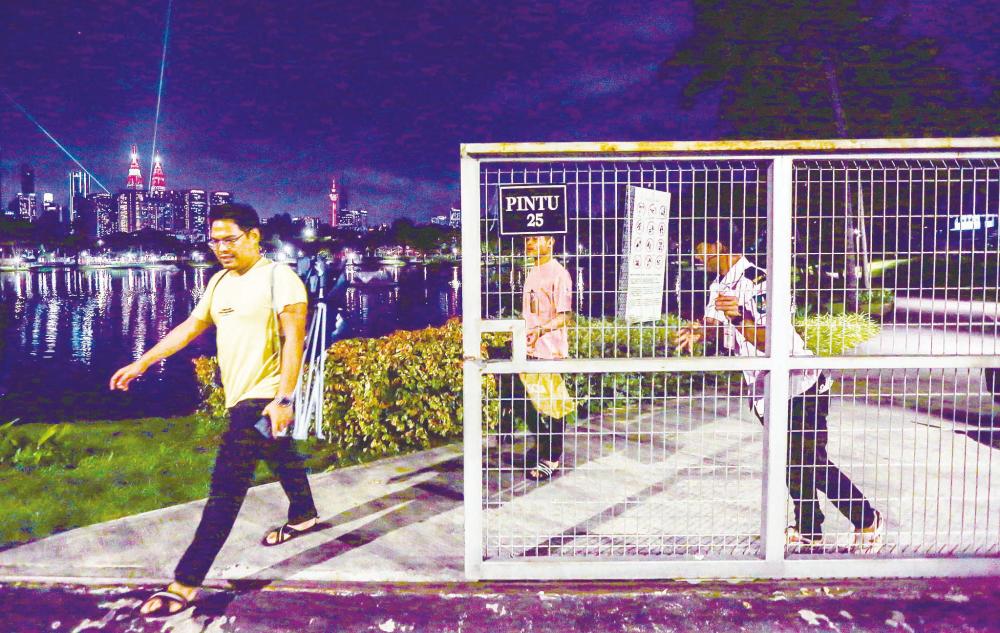PETALING JAYA: According to a research paper titled “The Growing Threat of Non-Communicable Diseases in Malaysia,” the probability of dying from non-communicable diseases is expected to rise to 19.4% this year and 20% by 2030.
The paper, co-authored by Shubash Shander Ganapathy, Chan Yee Mang, Nur Hamizah Nasaruddin, Nazirah Alias, Khaw Wan Fei, Lee Ann Tan and Tham Sin Wan, said the rise is driven by increases in cancer and diabetes deaths, and the high and sustained figures expected in cardiovascular deaths.
Considering this, Universiti Kebangsaan Malaysia public health medicine specialist Prof Dr Sharifa Ezat Wan Puteh has called for public parks to remain open until late at night to cater to the needs of working Malaysians, and address rising health issues caused by lack of exercise.
“Access to public parks for activities such as exercise can reduce stress and lower the risk of heart disease by 33%. It can also decrease the risk of dementia by 30% to 40%.
“For those with demanding work schedules, extending the hours for public parks would provide much-needed opportunities for exercise and relaxation, contributing to better mental and physical health.”
Sharifa Ezat said given the high prevalence of non-communicable diseases in Malaysia, public parks should be open until at least midnight, and equipped with clean and safe amenities such as toilets and lighting to encourage use.
“While higher-income groups can afford gym memberships or private recreational facilities, those in middle and lower-income brackets, and others with health conditions often rely on public parks as an accessible and free option for exercise.
“Unfortunately, urban development has led to fewer public parks, forcing many Malaysians to travel long distances for recreational spaces.”
She said to maintain cleanliness and safety, it is reasonable to introduce nominal fees for park usage or seek corporate sponsorship, with many developed countries having successfully implemented similar models.
Sharifa Ezat also called for improved safety measures such as CCTV surveillance, adequate lighting, and enforcement to prevent the misuse of parks for illicit activities.
She emphasised that parks in urban and semi-urban areas are particularly suited for extended hours as such spaces are essential for public health, but they must be kept safe and well-maintained.
“It may be costly for the government to manage public parks, but investing in them is akin to investing in people’s health.
“Public parks are more than just green spaces. They are vital to our collective health, and by extending their hours, we can foster healthier, happier communities.”
Nurse Nor Hidayah Abdul Shamsul, 28, who works shifts, said she only has time to relax or exercise at night.
“Parks are perfect for me because they’re free and offer fresh air, but most are already closed by the time I get there.
“Stress management is crucial for nurses, and a simple walk or jog in the park helps clear the mind after a long shift. But with the limited hours, I miss out on this simple method to unwind and stay healthy.”
Factory supervisor Farhan Malik, 42, said he works long hours and does not have the energy to work out early in the morning.
“Late-night walks in the park are my only way to stay active.
“I’m at an age when staying physically active is crucial. But between work and family commitments, I can only spare time for exercise late in the evening, but the parks are closed by then.”
He added that public parks could play a vital role in encouraging fitness for those in his situation as not everyone can afford gym memberships or private facilities.
“If parks were open longer and equipped with good facilities, many working Malaysians, including myself, would benefit greatly.”









